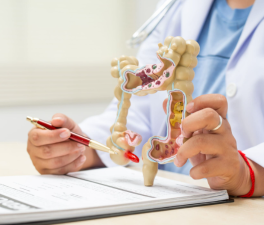How do you understand the saying "the intestines are the second brain of the human body"?
The intestines are often called the second brain of the human body because the intestines control the emotions of humans and some animals, such as serotonin, dopamine, and a variety of hormones that make people happy. 95% of them are synthesized in the intestines. The intestines are different from other organs. They have dense nerve plexuses. Just like the brain, they can secrete various hormones and even produce more neurotransmitters. Therefore, they are called "the second brain" or "the abdominal brain".
What is the intestine?
The intestines are important digestive organs in the human body. The intestines refer to the digestive tract from the pylorus of the stomach to the anus. It is the longest section of the digestive tract and also the most important section in terms of function. The intestines of mammals include three major sections: the small intestine, the large intestine, and the rectum. A large amount of digestion and the absorption of almost all digestive products are carried out in the small intestine. The large intestine mainly concentrates food residues to form feces, which are then excreted from the body through the rectum and the anus.
Since the intestine is called the "second brain", what is the relationship between the intestine and the brain?
The intestine and the brain can communicate in a two-way manner through the nervous system, endocrine system and immune system. The bacteria in the intestine, especially lactic acid bacteria and bifidobacteria, can affect our social behavior. For example, behaviors such as anxiety, stress and depression.
At the same time, the intestine also affects our sense of happiness. Intestinal neurons produce dopamine, which is the most abundant catecholamine neurotransmitter in the brain. Dopamine is a neurotransmitter, a chemical used to help cells transmit impulses. This brain secretion is related to human desire and feeling, and it conveys information about excitement and happiness. In short, dopamine makes the human body feel pleasure and makes us happy. It is a key substance that affects people's mood. The dopamine produced by intestinal neurons is the same as that produced by the brain, so the intestine, like the brain, can convey a sense of happiness to the human body.
If the dopamine level in the body is too low, it will make people depressed, produce bad emotions such as world-weariness, lack of interest in things, and lack of energy. It will also cause anhedonia (inability to experience pleasure), emotional indifference (lack of motivation) and bad mood (feeling dissatisfied, unhappy, painful, irritated and nervous). Therefore, the intestines and the brain seem to have nothing to do with each other, but they are actually twins. As the famous American doctor Mark Hyman said: "The most useful tool to repair the brain is to repair the intestines!" If you want to better protect your brain, you must first protect your intestines. In terms of diet, you can eat more coarse grains to nourish the stomach and intestines, green vegetables to supplement fiber, take a walk after meals, develop exercise habits, and appropriately supplement some probiotics. In short, the relationship between the intestines and the brain is very close. Protecting the intestines is also protecting your brain, so it is very important to maintain our intestines.

